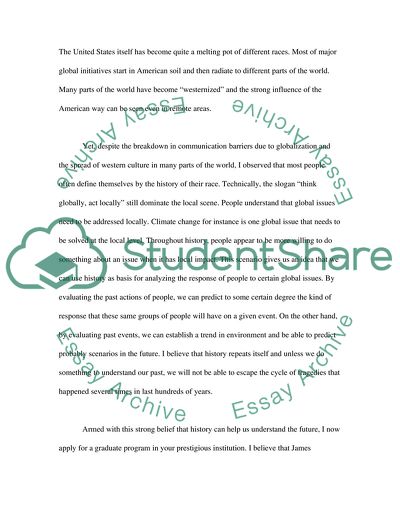How History Can Define the Future: Understanding Globalization and its Essay. Retrieved from https://studentshare.org/history/1556455-global-history-admissionaplication-essay
How History Can Define the Future: Understanding Globalization and Its Essay. https://studentshare.org/history/1556455-global-history-admissionaplication-essay.


